What South Korea’s new president means for its US, China ties
Expect a nuanced approach to foreign policy as President Lee Jae-myung attempts to pull relations with Beijing back from their ‘lowest ebb’
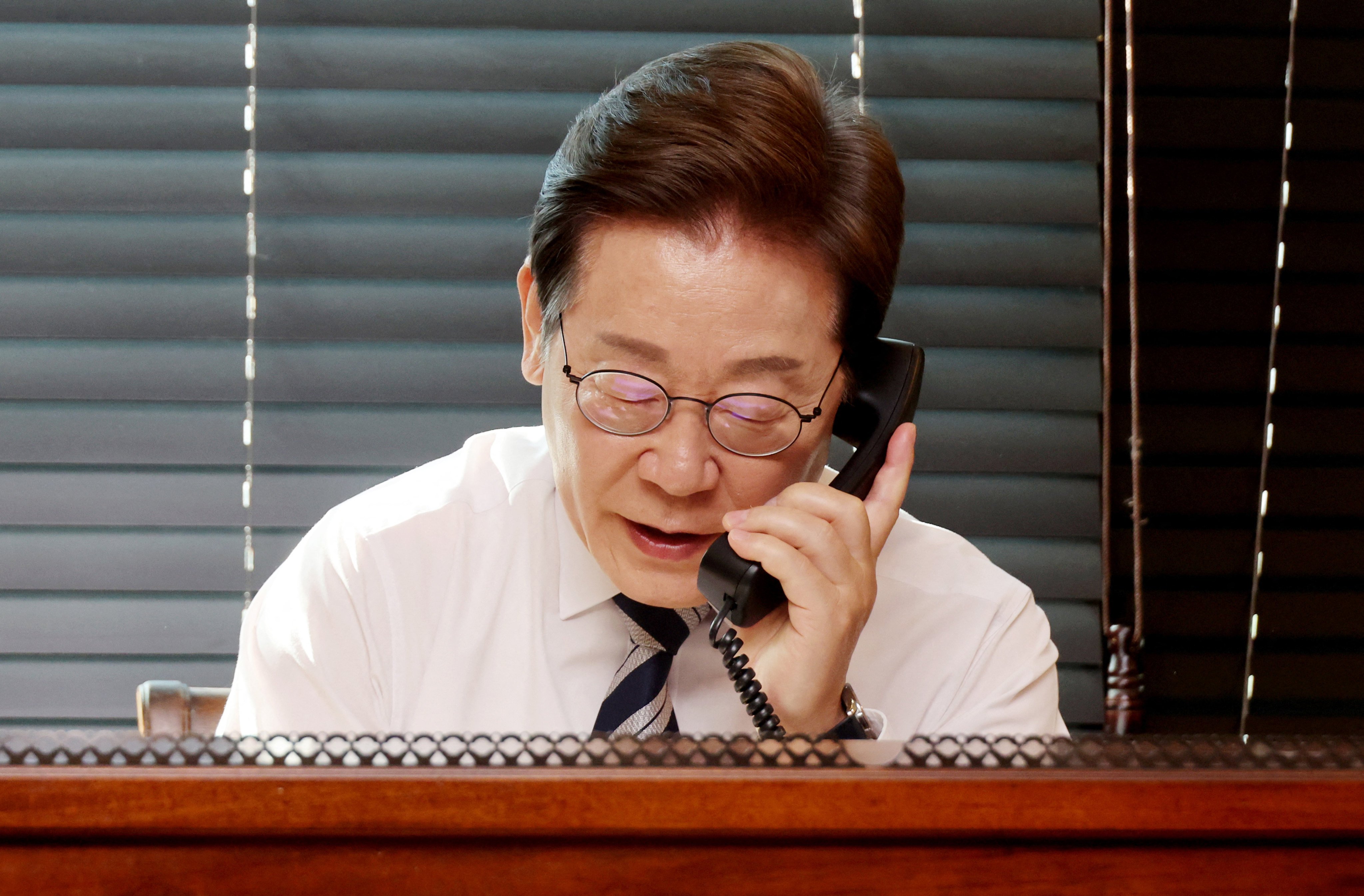
Six months ago, South Korea teetered on the brink of authoritarian regression. But on Tuesday, its citizens elected Lee Jae-myung – a symbol of resilience and reform – as their new president, in a vote seen as a rebuke of his predecessor’s failed martial law decree that plunged the nation into a political crisis.
The liberal Democratic Party of Korea (DPK) candidate secured a decisive victory over conservative rival Kim Moon-soo of the People Power Party (PPP), capturing 49.42 per cent of the vote to Kim’s 41.15 per cent in Tuesday’s snap election.
The vote – triggered by the impeachment of former president Yoon Suk-yeol – left no room for a transition period. Lee was sworn in immediately, ushering in a new chapter in South Korean politics.
With nearly 17.3 million votes, Lee achieved the largest vote count for a presidential candidate in the country’s electoral history on a voter turnout of 79.4 per cent – the highest in nearly three decades. For many, the election served as a referendum on the PPP, the former party of Yoon, whose unconstitutional martial law bid late last year stunned the nation.
“I will do my utmost to overcome the aftermath of the rebellion and ensure that never again will arms entrusted by the people be turned against them,” South Korea’s new president declared to a crowd gathered near the National Assembly in the early hours of Wednesday morning.
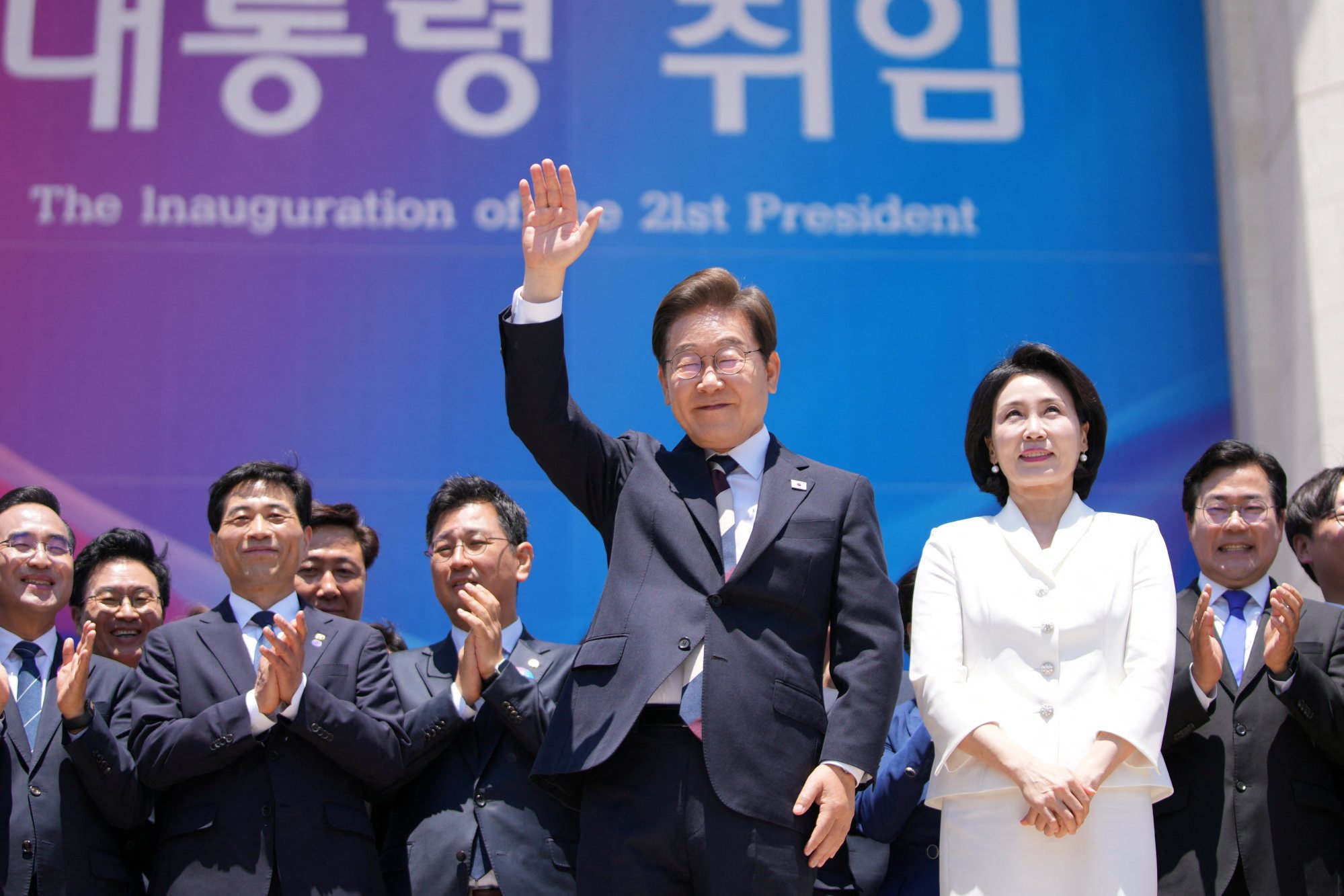
Standing beside his wife, Kim Hye-kyung, the 61-year-old Lee laid out a vision anchored in democratic restoration and national unity.
“We will restore democracy in this country and build a society where our citizens are respected as sovereigns, living together in cooperation – not with hatred or hostility,” he said. “I will immediately get to work to revive our struggling economy and improve the livelihoods of our people.”
For many voters, Lee’s life story embodies the resilience and progressive values he champions. Born into poverty, he worked in a factory as a teenager before becoming a human rights lawyer and eventually a prominent political figure. He served as mayor of Seongnam City from 2010 to 2018 and later as governor of Gyeonggi province, the most populous in South Korea.
Though narrowly defeated by Yoon in the 2022 presidential race, Lee’s political comeback has been swift – and emphatic.
In his inaugural address, Lee pledged to lead a “market-oriented” and “flexible pragmatist government”, committed to easing regulations, supporting businesses and bridging the ideological rifts that have fractured the nation.
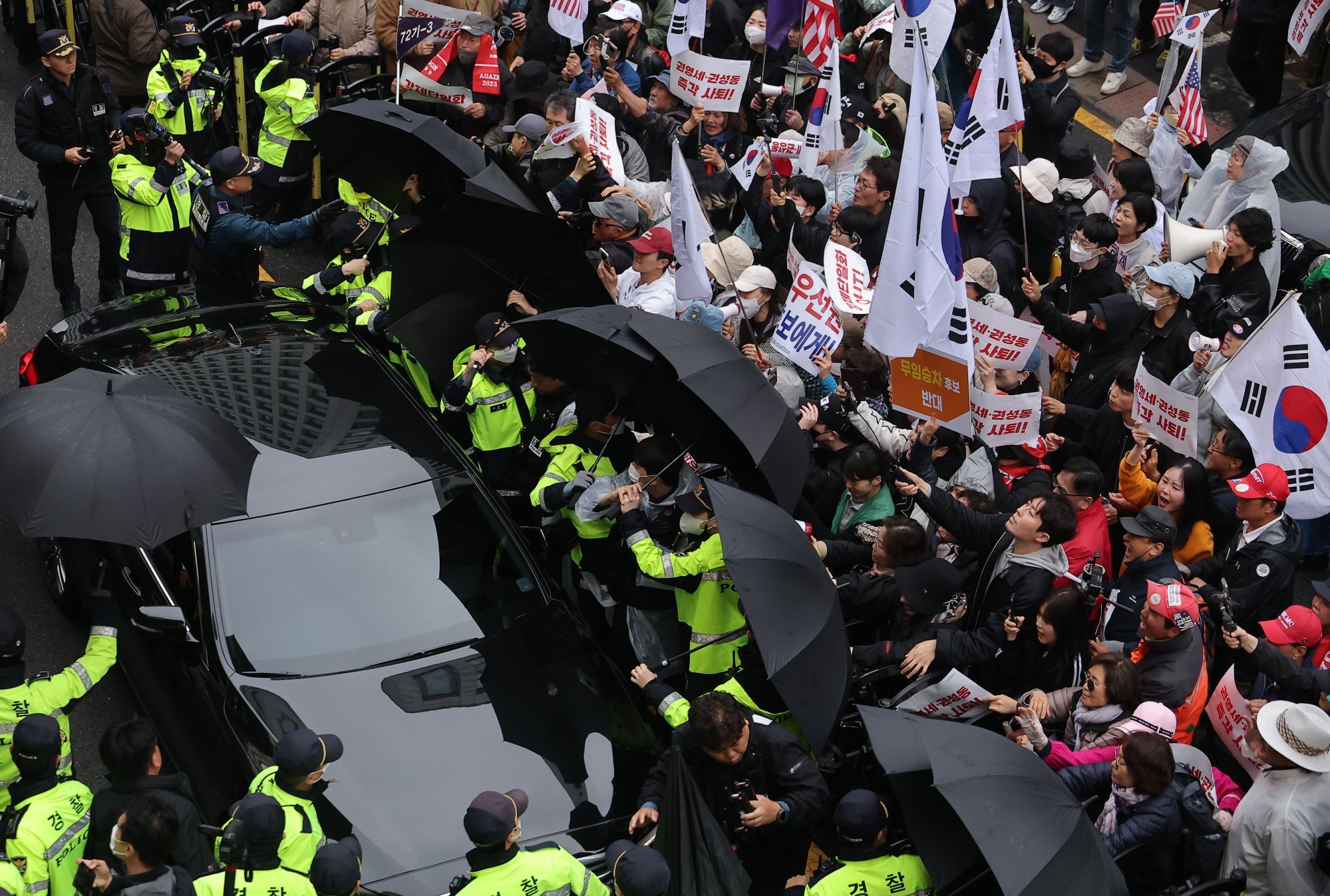
On foreign policy, he reiterated his support for a strong alliance with the United States, vowed to strengthen trilateral cooperation with the US and Japan, and promised to seek balance in the region.
“We will engage with neighbouring countries from the perspective of national interest and pragmatism,” he said.
“No matter how costly peace may be, it is better than war. It is better to win without fighting than to win through fighting. The most reliable security is peace that makes fighting unnecessary.”
But Lee’s remarks were not entirely dovish. Citing the South’s superior military capabilities – it regularly ranks as the fifth most powerful in the world and boasts a defence budget twice the size of North Korea’s entire economy – he stressed the importance of continuing to deter a nuclear-armed North, while also keeping communication channels open.
“We will … work to build peace on the Korean peninsula through dialogue and cooperation,” he said.
What Lee’s victory means
By electing Lee, political observers say South Koreans have emphatically turned the page on the authoritarian impulses of the Yoon era.
“Lee’s election as its new president will help put South Korea on its normal track following months of political turbulence,” Yoon Sung-suk, a political-science professor at Chonnam National University, told This Week in Asia.
With a National Assembly dominated by the DPK and its allies, South Korea’s new liberal president is expected to wield considerable consolidated power.
“The president’s grip on power will be strong,” Yoon said. “He will also be able to keep a firm hand on state affairs, backed by the National Assembly.”
Leif-Eric Easley, a political scientist and international studies professor at Ewha Womans University agreed with this assessment, calling the outcome of Tuesday’s election a “watershed moment” for South Korean politics.
But Lee’s ambitions for pragmatic diplomacy could yet come undone in a world increasingly defined by the rivalry between South Korea’s main security guarantor, the US, and its largest trading partner, China.
With the threat of punitive US tariffs still looming and Russia–North Korea military ties deepening amid the ongoing war in Ukraine, Lee’s government will find itself walking a geopolitical tightrope.
While the new president would doubtless aim to put daylight between his own foreign policy and that of his predecessor, Easley cautioned that Lee should not “throw the baby out with the bathwater”.
Certain elements, such as enhanced trilateral cooperation with the US and Japan, were well worth retaining, he said.
Lee should also prioritise cultivating personal ties with US President Donald Trump and stabilising the alliance by refocusing on military deterrence, economic security and coordinated diplomacy, according to Easley.
However, Jung Suk-koo, a former executive editor of centre-left liberal Korean newspaper The Hankyoreh, warned that pressure from Washington to join efforts aimed at containing China could severely limit Lee’s diplomatic manoeuvrability.
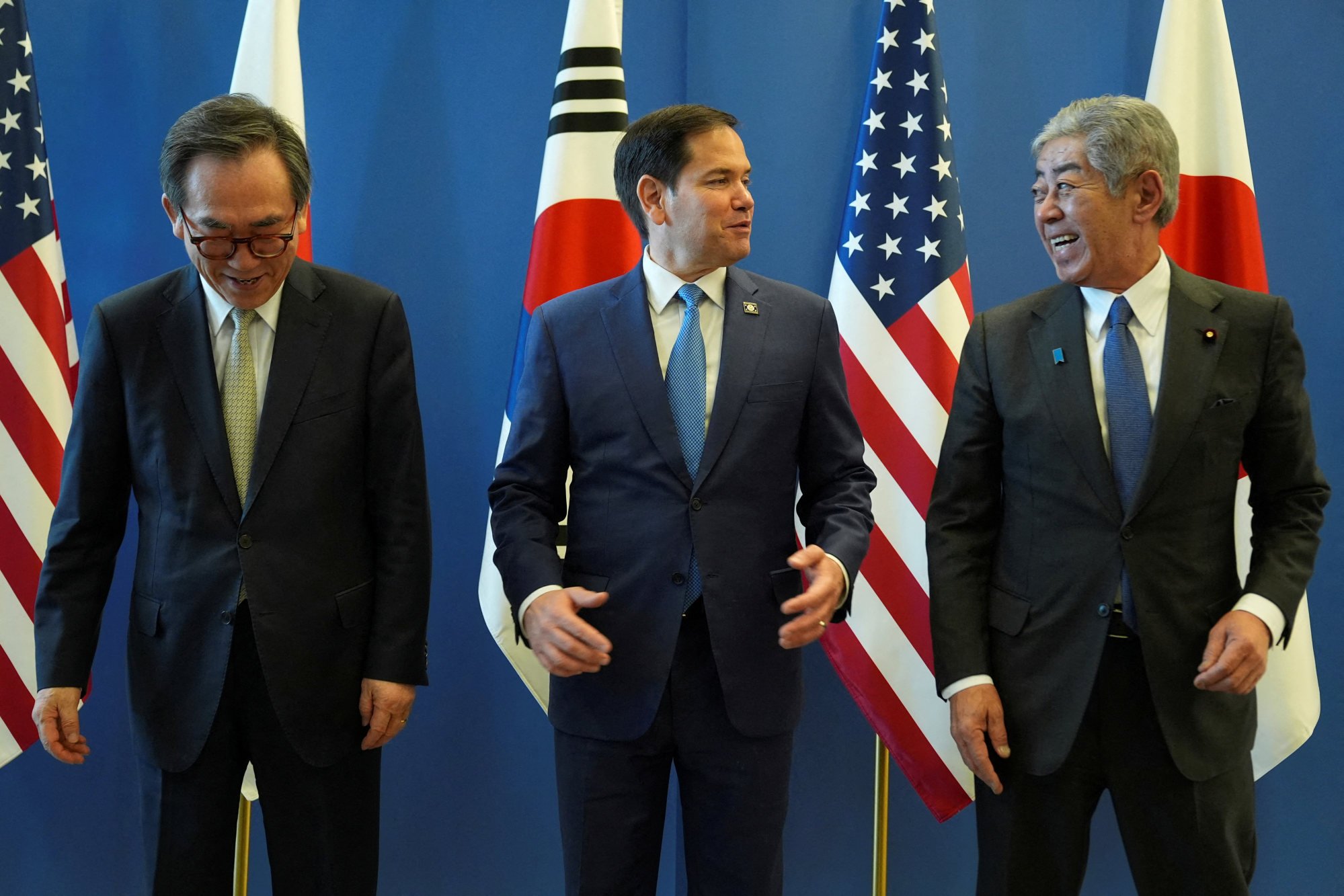
“As the rivalry between China and the United States intensifies, and as North Korea and Russia deepen their military alliance amid the war in Ukraine, Lee will find little room to manoeuvre,” Jung said.
During the campaign, Lee promised to restore US ties that were tarnished by the martial law debacle and leverage South Korea’s strengths in shipbuilding, defence production and hi-tech industries to negotiate an easing of Trump’s tariffs.
He also vowed to reinforce the South Korea–US–Japan trilateral framework, which US Secretary of State Marco Rubio said in a congratulatory message to Lee had helped “bolster regional security, enhance economic resilience and defend our shared democratic principles”.
Washington was not Lee’s only foreign-policy concern on the campaign trail, however. He also pledged to repair strained relations with Beijing.
“China is an important trading partner and also influences the security of the Korean peninsula,” he said. “I will stably manage the Korea–China relationship, which reached its worst state under the previous government.”
‘Friend or foe’ rejected
According to the seasoned diplomat Lee appointed on Wednesday as his foreign affairs and security adviser, ties with Beijing are currently at their “lowest ebb” since diplomatic relations were established in 1992.
“Yoon applied a ‘friend-or-foe’ framework not just to domestic politics, but to international relations as well,” Wi Sung-lac said in response to a question from This Week in Asia.
“He claimed to be pursuing value-based diplomacy that emphasised freedom and democracy, but undermined both by declaring an illegal martial law.”
Wi stressed that the Lee administration would avoid such ideological binaries.
“We’ll steer clear of black-or-white approaches and instead pursue a pragmatic path grounded in national interests,” he said.
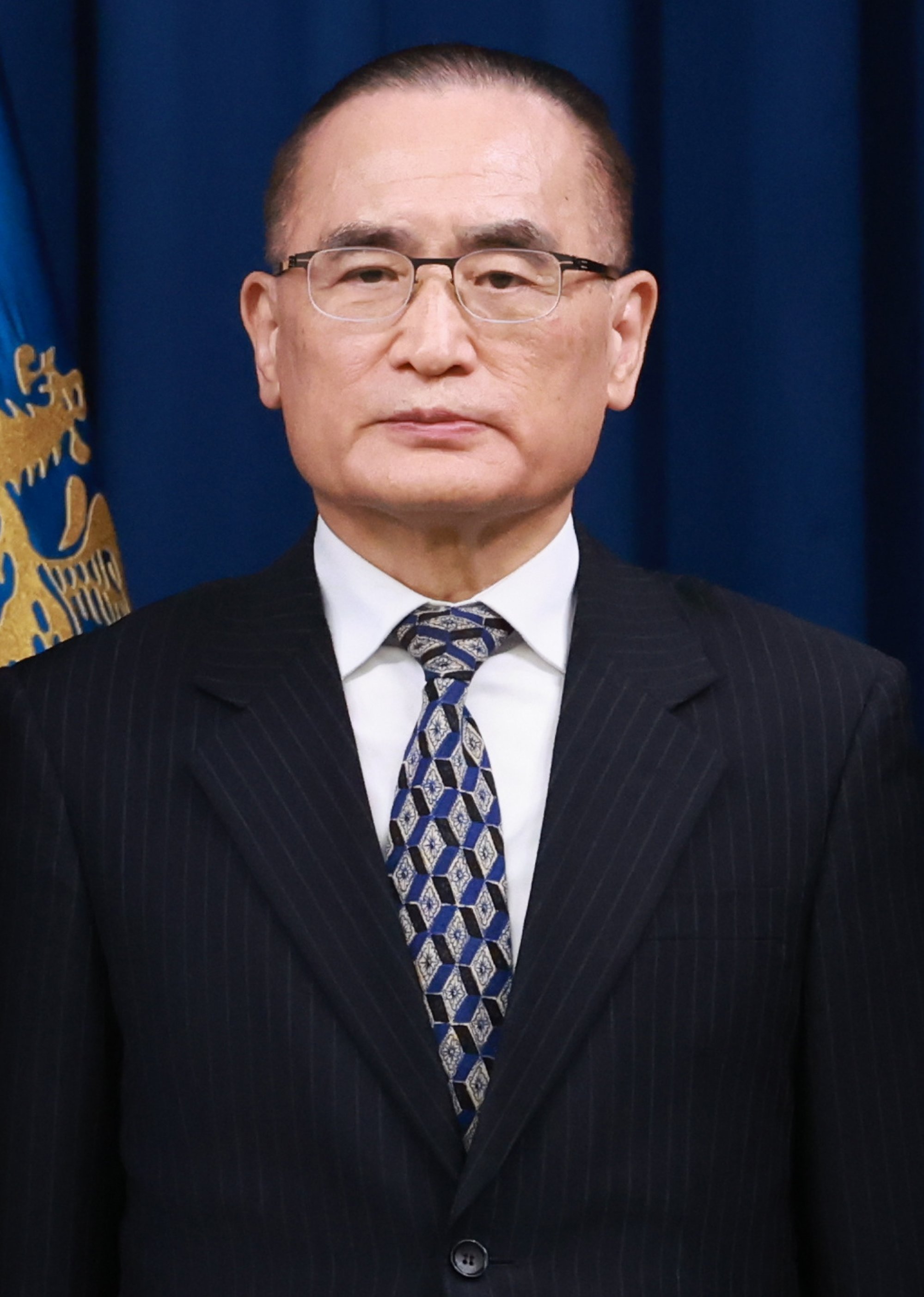
To that end, the new government aimed to establish a “strategic cooperative partnership” with China while stabilising relations with Russia, Wi said. But that, too, may cause a domestic backlash.
Anti-China sentiment, stoked by Yoon, remains widespread among South Koreans, according to Choi Jin, head of the Institute of Presidential Leadership, a Seoul-based research foundation.
Complicating matters are growing maritime tensions in the Yellow Sea. In February, China blocked South Korean inspectors from accessing a steel structure it says is a commercial fish farm. Seoul suspects the structure may have military implications.
“Tensions, confrontations, or restrictions on navigation are not desirable,” Wi said. “Both countries should prioritise stability in the Yellow Sea.”
Last month, China reportedly imposed a “no-sail zone” in parts of the waterway located between the two countries, prompting Seoul to raise concerns through diplomatic channels.
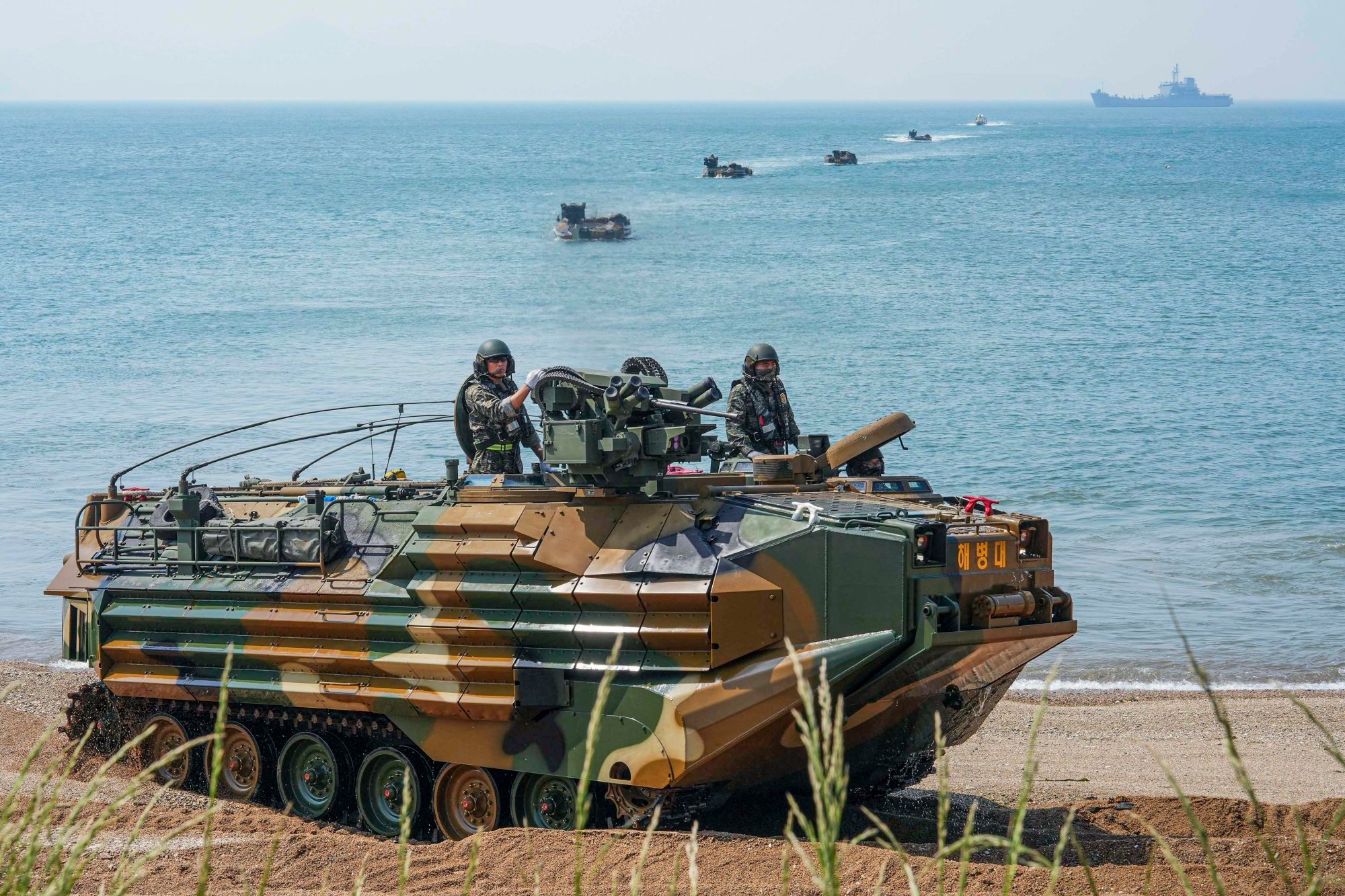
On Japan, Wi indicated that Lee’s government would pursue a “two-track approach” – deepening cooperation in security, trade and culture while continuing to address unresolved historical grievances, including wartime forced labour, sexual slavery and the dispute over the Dokdo or Takeshima Islands.
Sasae Kenichiro, president of the Japan Institute of International Affairs, noted in a recent seminar that both nations face pressure from Washington to shoulder more defence costs.
“It’s time for both countries to cooperate so the United States can play its proper role – and to move forward together,” the the retired Japanese diplomat said.
Lee’s room for foreign policy manoeuvre may also shrink as global tensions rise.
“Superpower rivalry is intensifying. China and the US are increasingly at odds, while North Korea is aligning more closely with Russia,” Lee Jun-han, a political-science professor at Incheon National University, told This Week in Asia. “In this climate, Lee won’t have much wiggle room.”
In this climate, Lee won’t have much wiggle roomLee Jun-han, political scientist
Still, South Korea’s new president is determined to thaw frozen relations with Pyongyang. He has vowed to restore an inter-Korean military hotline, halt provocative leaflet campaigns and propaganda broadcasts, and resume dialogue.
“To make meaningful progress toward peace on the Korean peninsula and resolve the North Korean nuclear issue, we will work closely with our ally, the United States, and seek broader cooperation with the international community,” he said.
North Korean state media acknowledged Lee’s election victory in a short report published on Thursday that went into few details.
Echoing Lee’s vision, Wi called for a return to multilateral engagement.
“There’s no reason the United States, Japan and China can’t cooperate on denuclearisation and peace,” he told reporters last week. “They’ve done so in the past – and we should do the same now. Unfortunately, things have been moving in the opposite direction.”